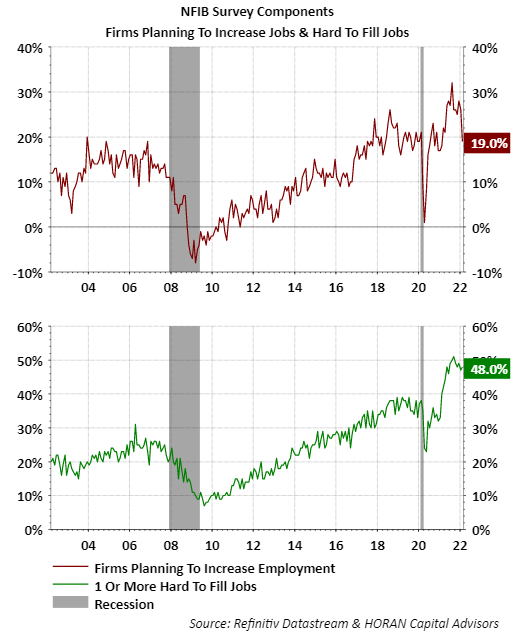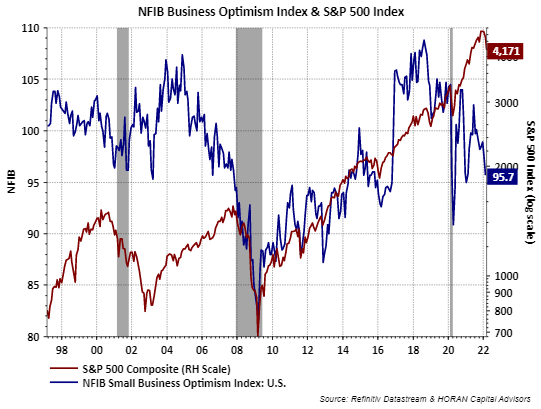Inflation Is Impacting Small Businesses
Although Tuesday's release of the NFIB Small Business Optimism Survey was conducted in February, and before the recent oil price spike, inflation issues are impacting small businesses.

The survey noted that 68% of owners are raising prices, a 48-year record high and a seven percentage point increase from January's report. According to the report, "Price hikes were the most frequent in retail (79% higher, 4% lower), wholesale (77% higher, 4% lower), construction (73% higher, 3% lower), and manufacturing (72% higher, 6% lower)." Additionally, 26% of owners reported that inflation was their single most important problem in operating their business, a four-point increase since December and the highest reading since the third quarter of 1981.
Following this survey, and as the month of March progresses, oil prices, and commodities broadly, have seen significant price spikes in part due to the Ukraine/Russia conflict. As I write this post the price of a barrel of West Texas Intermediate crude oil is over $120 per barrel, up from $64 per barrel a year ago. Today, the spot price of many commodities are in backwardation, the term that refers to spot prices being higher than the forward [or future] prices, which is an indication one is willing to pay a premium today for the commodity. In other words, demand and short supply are contributing to commodity price inflation. In a recent podcast by Goldman Sachs, it was noted,
“That is telling you you're out of this stuff. And when we think about what is the potential here? Can we be out of physical goods that slows growth well before the [Fed] rate hikes ever do any reduction in overall activity and the global economy is depending upon the service sector to keep it going? That is an option potentially here because the supply constraints on the physical side are pretty significant.”
Certainly higher prices are weighing on small businesses. In the February survey fewer businesses responded that they are planning to increase employment. Of the firms surveyed, 19% indicated they would add to employment which is down seven percentage points from January. Additionally, the percentage of firms having hard to fill jobs is beginning to decline. The job market may be starting to weaken in the face of higher commodity prices and businesses anticipating a slowing economy.

And lastly, for the broader NFIB Business Optimism Index, it decline 1.4 percentage points to 95.7. The report notes this is the second consecutive month the index is below the 48-year average of 98.

As noted earlier in this post, inflation is elevated and it is a variable that is a headwind for small businesses. With the recent spike in oil prices, and commodity prices broadly, it may not be reasonable to assume the consumers will look past these inflationary headwinds.
Disclaimer: The information and content should not be construed as a recommendation to invest or trade in any type of security. Neither the information nor any opinion expressed constitutes a ...
more


